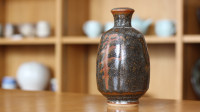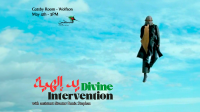How to rebuild a city with Karam Alkatlabe


Let us shine a light on tips and tools to support your research process. This week: using feedback

Feedback is any kind of information that someone gives you about your performance, skills, and/or understanding, and can represent one of the best opportunities for improving. Feedback could be a grade on your essay, or comments given to you verbally or in writing. It might come from your tutors, but might also come from friends, family, or even from yourself.
However, many students don’t take notice of their feedback. This can be for many reasons, but it’s very difficult to improve without getting any input on what to do differently, and how. It is often overlooked as it is easy to feel as though as soon as you put the last full stop on a piece of work, you sever any kind of connection with it. But ignoring your feedback makes it difficult to do better next time. So receiving feedback is not the important thing. Instead, it is what you do with it that counts.
There can be many obstacles to using feedback: maybe you don't understand the language that your supervisor is using; even if you understand it, it can be difficult to know what to do with it; it can irrelevant or pointless unless you're sure how to put it into practice; and it can be demotivating. Always ask for clarification about the steps you can take to make the most of the comments you receive. Talk about how it makes you feel with friends and identify why you feel that way. If you don't feel in a position to improve perhaps you need some support to find a wider range of resources, to help with your writing, or to plan your time more effectively. Tutors, Directors of Studies, Supervisors, Librarians, the Disability Resource Centre, the Language Centre, as well as peers studying the same subject as you, are all here to help.
How you feel is critical to the success of feedback - you have to be in the right frame of mind to want to implement it. If you are happy, you may feel that you don't need to look at the detail but this is an opportunity to find out what went well so that you can keep up the good work. If you feel bad at about the feedback you may not want to look at it again. So take a few days to put some distance between that initial reaction and the chance to reflect on what went wrong. It is so much easier to absorb the constructive points when the emotion has subsided and if you ignore it entirely, you can't improve.
A quick way of dealing with feedback is to write out the positive and negative comments in a list on your phone or on post-it notes and make them visible when you complete your next piece of work to remind you of what went well and what to avoid. Or you could be more systematic and record feedback to create a 'portfolio' to help you reflect on your work over time. There are lots of templates on the Wolfson College LibGuide:
Remember that receiving feedback is just the first stage in improving your work, you need to implement the suggestions in order to improve your work.

A display of works from the Bradshaw-Bubier studio pottery collection.

How we can develop ‘death activism’ – a variety of tactics and posthuman practices which celebrate death, its inevitability, its forms, from the slow to times of crisis, and how can trauma and mourning emerge as their own forms of expression, or even activism?

We are delighted to welcome Sandi Toksvig OBE as our speaker for Wolfson's prestigious Lee Lecture this year.

Join us for the 2024 Wolfson Research Event: an interdisciplinary academic conference organised by students to showcase the diversity of the research carried out by Wolfson students.

Screening of Elia Suleiman’s Divine Intervention, in conversation with assistant director Rania Stephan.







